Alex Vrettos's Blog
January 17, 2017
A Monster Calls – A Hero’s Journey
A Monster Calls is a journey into loss and shame the likes of which you’ve rarely seen before. It is fantastic in terms of the production design, performances and writing. I of course particularly enjoyed the wisdom woven within the story – the dark mythical threads that stimulated the storyteller and remedial hypnotist inside me.
For starters the monster is a mythical beast who enters the modern world to assist a young boy, Conor, with grief, which is one of the most complicated emotional experiences regardless of how old you are. The monster brings with it some fairytales with which to teach Conor how to cope with a change being forced upon him in his real life.
The monster is a frightening and dark presence and does not introduce himself in any way that inspires confidence but Conor is not afraid and tells him so. The mythological theme here is that of the ego and shadow – Carl Jung’s model of personality identifies The Ego as the personality and capability choices that each of us as individuals make in our lives and The Shadow is the complete opposite of those choices. That does not necessarily make The Shadow bad – just different as can be from you – and so your shadow should not be ignored as it might have something useful to offer. This story teaches us that salvation is not always found in our positive thoughts.
For much of the film I thought that the monster was there to help Conor face his greatest fear, but it is not as simple as that. The monster represents the darker side of Conor speaking wisdom and encourages him to listen to those darker thoughts and not ignore them because ignoring them can do more harm than good. The Shadow is as much a part of any of us as our Ego and needs to be acknowledged because a single minded approach to life is not healthy. Even the monster’s stories that save Conor highlight that good people are not necessarily all good and bad people not all bad.
Looking at this story in terms of Joseph Campbell’s Monomyth, I can see two hero’s journeys present – one is completed within these events where this story is only the first few stages of Conor’s much bigger hero’s journey, but so it is with life – the change we have to learn to cope with is perpetual.
Conor’s ordinary world is under threat from his mother’s illness which is his call to adventure. I feel this story is all about his refusal of the call of that particular adventure and overcoming it. Conor is blocked by his inability to accept his mother’s impending death and the monster is the mentor that he summons from his subconscious to help him through. In accepting his mother’s death he crosses the threshold and so begins his road of trials, but that is where we leave him. This is his bigger story.
The entire hero’s journey found within A monster Calls is the smaller story within the larger story. The call to adventure in this case is Conor’s grandma and his refusal of that call is his denial that he needs to live with her. The Monster is still the mentor in this story, but his crossing of the threshold in this particular journey is when he agrees to listen to the monster’s tales – he submits to an unknown world. He then embarks on his road of trials by facing a series of challenges that have already been established – with his father, school bullies and his grandma – where the relevance of the stories that the monster is telling him start to bleed through into his real life and understanding.
All of this leads him to the big ordeal with the monster who forces him to confront himself and admit what he has been hiding from and in that moment finds he stops denying the inevitable, faces the death of his life so far and is able to let his Mum go. In doing that he becomes more accepting of his grandma and new life with her. His road back is travelled with her during which they actually bond for the first time on their way to his Mum’s death bed which is his resurrection. His return with the elixir is when he moves in with his grandma and realises that it is not as bad as he thought it was going to be at the beginning of things.
The final revelations of the film are most heart-warming as well which might actually be the true elixir – it was for me anyway.
December 3, 2016
The Director Of DIF
If souls were islands The Director's would lie undiscovered in mist. It would be inhabited by dreams marauding as truths and truths dressed in bowler hats behaving like Lemmings.
December 1, 2016
Henry from DIF
November 30, 2016
Jacob in DIF
"If souls were islands Jacob's would be afloat in a glass on a tiny sea of decadent elixir, small and picturesque in the sunlight but probably hollow on the inside."
November 28, 2016
Azad Amri of D.I.F.
Azad Amri is one of the cast members of Desert Island Franchise my new serial. He's on his trial period in a store on a remote and uninhabited island. link: Read here for free on Wattpad
"If souls were islands Azad's would be little more than rock and earth, but it would serve well as a wave-breaker interrupting the flow of everything else around it."
November 22, 2016
Thoughts That The Arrival Of Aliens Inspired About Brexit
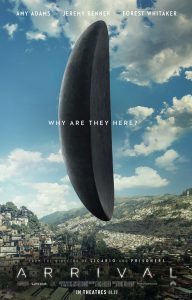 I don’t know.
I don’t know.
It’s a resounding thought in my head at the moment. Since Brexit. Since Trump Vs Hillary. I don’t know.
I watched the movie Arrival recently and was really impressed. I knew it was going to be an intelligent movie rather than just a bit of fun, but I found it activating brain cells that I thought I had put to bed for the night.
I don’t know. That’s what the world in the movie thought when aliens initiated first contact. I don’t know. That’s what I thought when our government asked my opinion on whether we should remain in the EU or not. I didn’t know, but I voted what felt right – I voted for remain not because I understood the politics but because I felt that we are at a point of human evolution that means we should be working together as a world race or we will fail. This is a philosophy that rang true with the ideas set out in the story of Arrival.
I don’t know. A thought resounding through my mind while reading everyone else who clearly knew they were right while expressing their opinions about Hillary or Trump. I know that Trump is one unabashed and hateful chap who we some of us are encouraged to hate even more, but I suspect that Hillary is one despicable lady with more interest in maintaining the current power structure than what is best for the people of the world but she knows to hide this behind a mask of political correctness like the majority of our western leaders. But there I go – as guilty as everyone else – generalising. Not everyone knew. In fact I believe there are a lot us who did not know, who do not know, but what is there to say that will ring louder than those from both sides that clearly do? When you don’t know, in my experience, it is best to shut up and listen, but it is hard to find amongst all the noise who it is best to listen to.
While listening carefully, the main thing that I have picked up is that there is no real dialogue. The two sides are rarely talking and the voices that are talking in non-combative rhetoric fail to float to the top of the noise.
What Arrival stirred in me tonight is that we often come up against things that we do not know. They do not match any of our individual past experience from which we learn. In that situation we are in the hands of experts who we have to trust, but they are not all going to have the same perspective – we have to listen to the right mix of opinions.
(Spoilers follow)
In the film, fear and uncertainty reach a peak and all nations stop talking to each other which makes the situation worse. It becomes clear that one bad decision by one nation could put us all at risk, just like one bad decision by one individual could put the world at risk. This is something that sensible politicians are probably aware of and it is quite possibly a debilitating knowledge.
And so, in Arrival, it comes down to language – how we understand reality comes down to how we communicate. Therefore if we stop communicating our understanding of reality falters. Shouting our opinions at others does not count as communication. The key is in the discussion – help me to understand you and please let me try to help you understand me and there’s every chance we may lose some of the crap along the way.
Communicate.
Do not be afraid to admit that you do not understand, no matter how intelligent or important you are. Be prepared to admit that the way you think and feel is just one way to think and feel. This is not just about you or yours any more this is about all of us. We know better than ever before in history that we all have a responsibility to each other and the next generation.
I don’t understand and neither do you. Keep trying to understand, but never never reach the conclusion that you do. There is always more to learn. The more alien someone’s views are to yours the harder you both need to try, and if the other party is not trying then you need to try even harder to understand them. And remember – to understand is not necessarily to agree with.
Do we really want an alien race swinging by to tell us to communicate better? I’ve never been great at being told what I should and should not be doing by my bosses or my parents. I prefer to figure these things out for myself!
I feel Arrival is a good movie with some interesting ideas. Stories have always been our primary way of teaching. Stories do not teach the way a teacher does from the front of a class. Stories invite us in to an alternative reality which jostles with our experiences and beliefs formed by our own reality, and like the main characters – you should emerge from the other side changed, as stories allow us to teach ourselves, to discover the things that we know but do not know that we know.
Happy travelling through your realms!
March 5, 2016
The Digital Afterlife Of Iain M. Banks’ Surface Detail
Iain M. Banks’ Surface detail is one of my favourite books. It is an epic space opera as well as about a subject that fascinates me – the continuation of life after death through technology. In Surface detail, as well as a number of other Iain M. Banks books, this is achieved in three different ways:
Revented
Members of the culture have the option to keep backing themselves backed up. Every day or few months they would have themselves scanned so that they can be brought back to life from the point of the last back up. They may lose a few hours, days or months and they would not remember their own death but they would live again. My problem with this is that we are constantly learning and changing so as soon as you continue after your back up has been made you are two slightly different people. Also, if they are both in existence at the same time this suggests a pretty significant degree of separation. This more than any of the others feels like a copy rather than continuance of life and consciousness.
There are some characters who have a neural lace which records and transmits their mind to a substrate in a ship mind at the point of the their body’s death. This seems more seamless than the idea of regular back ups as the break in consciousness is miniscule and continuation immediate but it still feels like a copy.
However the copy is made the technology exists to grow another body so that you can pick up where you left off in the real world or you can continue to exist in your choice of virtual world. A digital afterlife.
Heavens
Culture citizens have a choice of digital afterlives that they can chose to live in until they decide to come back to the real world or decide to face their final demise, but only when they are ready. It would be nice to chose your heaven.
It is a very different type of story, but I really enjoyed the film that explained that in order to ease transition the soul picks its own afterlife until it is ready to accept that it has passed on. There is no suggestion that this is technology in the film though, it is just the natural way of things.
Hells
The Hells are interesting a debate that is at the centre of Surface Detail. The Culture has no hells and disagrees with the concept of suffering but many other species in the galaxy believe they are important. We only really get a good look at one hell in the book and it is awful, a place of pain and no hope. I can;t imagine being stuck there for a week let alone an eternity, not to mention that a year in there is only a short time in the real world, but I do not suppose that matters when you are facing eternity.
The Hereafter
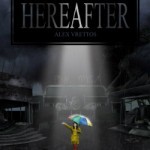 It was reading Ian M. Banks’ book Look To Windward that I first came across the idea of a digital afterlife, but I was interested in what it would be like if it was invented in our world. The Hereafter is just that – a look at how it might change things in our world. Add to that the concept of interfering with the natural course of things. Nature does not like it.
It was reading Ian M. Banks’ book Look To Windward that I first came across the idea of a digital afterlife, but I was interested in what it would be like if it was invented in our world. The Hereafter is just that – a look at how it might change things in our world. Add to that the concept of interfering with the natural course of things. Nature does not like it.
In The Hereafter there is a Personality Storage Capsule where the mind state is downloaded to at the point of death and from where it is uploaded into the artificial afterlife. This holds the same problems as the copies Iain M. Banks’ stories but this is not an issue that I address in the story.
I do address the issue of a hell. There are rules that need to be adhered to in order to gain entry to The Hereafter but there is a character in the book who believes that the creation of the afterlife removes the threat of divine retribution from the world and takes that responsibility on his shoulders by creating a legend and an artificial Hell to load wrong doers into.
February 12, 2016
Transcendence The Movie And An Artificial Afterlife
I watched Transcendence the movie last night and it got me thinking. The stories that became myths that became religions that became the foundation to societies offered transcendence. It is the bribery the divinities or their representatives offer in exchange for following their rules. Heaven is the best known in my corner of the world but there are many others. Technology is now in the running though, a man made transcendence.
They are already making headway in a digital afterlife where you can live on digitally in social media after you die by means of AI software scanning your behaviour and replicating after your demise so you keep commenting and sharing the same sort of things.
I do not believe anyone is promising that this is any kind of continuance of consciousness though so no kind of evolution from bio to digital intelligence. That issue is explored very well in Johnny Depp’s Transcendence the movie.
Spoiler Alert
In the film Jonny Depp is a scientist working to develop artificial intelligence and meets with an accident that leads to his slow death. The solution is to transfer his consciousness into a very powerful computer. When they realise his successful transference his team have achieved everything they have been working for but instantly one of them is suspicious that this is not him which remains the complicated issue of the film from that point on.
This highlights the point that I am interested in. My novel, The Hereafter, is about the same technological breakthrough but instead of remaining in this world it is about creating a new world for those who have transcended into digital form at the moment of their death – an artificial afterlife where they can reside happily forever after their body is dead.
In the novel there is no question. In the novel I claim that technology offers a guaranteed afterlife which people can somehow trust better than taking their chances with oblivion – the great unknown beyond a natural death. In reality I have to ask though – what guarantee is there that this technology is a continuation of your consciousness and not just a replica?
To take that question deeper into philosophy – our brains store our memories and our memories make us who we are. Every time we go to sleep the stream of our consciousness is broken. So when we wake up how do we know we are the same consciousness that went to sleep and not just a copy with all the same memories and no reason to suspect otherwise?

The Hereafter
This is an issue that I touch on closer in I Am You than The Hereafter. In I Am You when the main characters hijack someone else’s body they take over their brain as well – they know everything that person knew and can do everything that that person has learned to do but they hold on to their own consciousness in doing so. If the issues raised in Transcendence the movie interest you feel free to take a closer look at my books, The Hereafter in particular.
January 24, 2016
I Am You, A Different Story About Having A Superpower
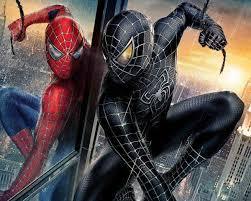 The Trilogy Of The Realms is a different story about having a superpower. It is not at all your classic superhero and super villain story but it does share many elements viewed through the lense of contemporary fantasy. To be able to take over the body of whoever they want means that there are no real limitations for the protagonists. They can do what they want when they want and there is no one in the world that they cannot get to in order to persuade or threaten.
The Trilogy Of The Realms is a different story about having a superpower. It is not at all your classic superhero and super villain story but it does share many elements viewed through the lense of contemporary fantasy. To be able to take over the body of whoever they want means that there are no real limitations for the protagonists. They can do what they want when they want and there is no one in the world that they cannot get to in order to persuade or threaten.
In I Am You the main protagonist uses this ability to make money as an assassin and manipulate of events such as sport or business that make criminals rich. I am writing the second book in The Trilogy Of The Realms at the moment called This Is Me. The assassin’s friend is the protagonist in this book and uses his abilities for good. Instead of killing people or cheating, he grants wishes. He does this by taking over the bodies of people with disabilities and giving them experiences and memories they cannot achieve themselves, he helps communities by taking a glimpse in the heads of public figures to make sure they are telling the truth about what they can and cannot do and the reason behind this. It’s a different story about having a superpower because in neither books are they superheroes or super villains – one is just trying to use his abilities to create a comfortable life and the other is just trying to make amends for the many deaths he has been responsible for in the past. There is also the added problem that neither of them has a body of their own to dress in a spandex suit.
I was writing This Is Me a few days ago and Matt, the protagonist, was granting the wish of a young child to capture his mother’s killer, a notorious bank robber on the FBI’s most wanted list. All Matt needs to find someone is a detailed knowledge of their physique and personality so he finds this guy, hijacks his body and walks him into the nearest FBI headquarters.
This was interesting to me as Matt asks the FBI boss that he meets ‘why do I not get any wishes from you or your agents?’ as he would be able to round their most wanted list up in one day without breaking a sweat. The boss is a man who exists in a world of strict procedure and protocol and explains with little patience that he works within a system and Matt is not a part of that system. His reply is ‘for the same reason that we do not arrest Santa for Breaking and Entering’. Even with the abilities Matt has, he is not taken seriously by a well established system of law enforcement despite the fact that he can make a hugely significant improvement to that system if he is allowed to take part.
I think this comes from my own experience as a hypnotist. I am not saying I am a superhero, but using hypnosis I and many colleagues have been able to help many people who have suffered from what the medical profession refer to as mental illness. Hypnosis can help someone with clinical depression for example in just 2 to 4 hours who has been within the established system for years, but hypnosis remains on the outskirts of that system instead of being the first intervention that people are offered. I know how Matt feels and therefore I think I know which depths of my imagination this scene came from.
The other interesting thing is the fact that Matt could just get on and round these criminals up anyway, whether the law enforcement community asked him to or not. Instead he has chosen to set himself up as the wish foundation and keeps himself more than busy helping people that are actually asking for his help. This is reminiscent of one of the God conundrums. An issue that is brought up in a humorous way in Bruce Almighty when Bruce is trying to work out how to handle all the prayers he receives.
Having a superpower or super-ability is quite a responsibility, and I have a better understanding now of why Batman and Spiderman for example are treated more as criminals despite the fact they are trying to make the world a better place. So, as observed, this is a different story about having a superpower, but it has helped me to understand the genre better. As The Trilogy progresses though I will be playing more and more with the supernatural elements as I wish each book to be bigger and more epic than the previous one so watch this space for the development of more super villainous baddies and super heroic goodies.
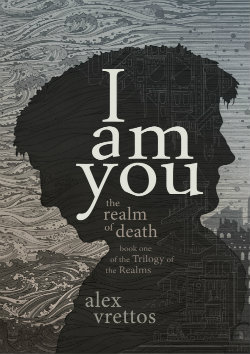 The key theme of any superhero and super villain story is about the human psyche, about the constant battle in our minds between who we are and who we are not – the ego and the shadow – and that is very much the psychological phenomena that we all live with every day that has inspired I Am You and The Trilogy Of The Realms. In I Am You you can see this divide between the main two characters. You can see it symbolised in the characters of David and his split personality and Kryspin with his Tourettes. Then you can see it more literally when Matt realises that anyone who dies with Matt or You in their body has their soul cleaved in half so the Ego and shadow are seperated to become two separate entities trapped in The Realm Of Death.
The key theme of any superhero and super villain story is about the human psyche, about the constant battle in our minds between who we are and who we are not – the ego and the shadow – and that is very much the psychological phenomena that we all live with every day that has inspired I Am You and The Trilogy Of The Realms. In I Am You you can see this divide between the main two characters. You can see it symbolised in the characters of David and his split personality and Kryspin with his Tourettes. Then you can see it more literally when Matt realises that anyone who dies with Matt or You in their body has their soul cleaved in half so the Ego and shadow are seperated to become two separate entities trapped in The Realm Of Death.
January 8, 2016
Stephen King’s The Dark Half Summary Of Themes
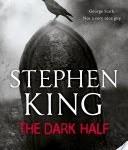 One of my favourite Stephen King’s books is The Dark Half. I have read it a couple of times but not for a good few years. Looking back in hindsight I can see why it grabbed me the way that it did and that is the theme of the book.
One of my favourite Stephen King’s books is The Dark Half. I have read it a couple of times but not for a good few years. Looking back in hindsight I can see why it grabbed me the way that it did and that is the theme of the book.
Ever since coming across the psychological and mythological theme of the Ego and the Shadow and how the idea is the foundation of so many stories I have been fascinated by it.
The Dark Half is a perfect example of this theme. We are people of extremes but we cannot be both extremes at once. If you decide to to be selfless in certain respects you will inevitably selfish in others. If you choose to be a nice person, you still have dark thoughts at the very least. The Ego is the person that you choose to be and the Shadow is the exact opposite.
Even if you chose to be a nasty person – you are being nasty for what you feel are the right reasons and therefore your shadow is your nice side, but that nice side is as much a threat to the world you live in as a nun’s dark side is to hers. By threat I do not mean danger, I mean change!
Stephen King’s The Dark Half spoiler alert:
In the book, Thad Beaumont writes successful crime novels about a violent killer under a pseudonym George Stark. In the book he decides to come back to writing under his own name and so has a symbolic burial of George Stark. From then on strange things start happening as a violent killer of Thad’s description starts closing in on Thad and his wife and the mock burial plot has been dug up from within.
I loved the concept and now I am writing my own dark fiction I can really identify with it. I am a pretty nice guy on the whole but some of the ideas on my stories are dark and I have often joked that my writing is a way to exercise my demons, taking them for a spin to stretch their legs so that they do not get too cooped up in my soul and therefore start getting restless.
I will never bury them though as that is to reject them and demons do not take well to rejection, that gives them a chance to become autonomous and autonomy is power.
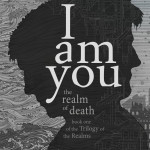 The Ego and Shadow fascinate me so much so that it has inspired my entire trilogy ‘The Trilogy Of The Realms’ the first of which ‘I Am You‘ is available on Kindle, Nook, Kobo, Mineeye.co.uk. I have just started writing the second, ‘This Is Me’ today. All stories are about the psyche – all stories are about you!
The Ego and Shadow fascinate me so much so that it has inspired my entire trilogy ‘The Trilogy Of The Realms’ the first of which ‘I Am You‘ is available on Kindle, Nook, Kobo, Mineeye.co.uk. I have just started writing the second, ‘This Is Me’ today. All stories are about the psyche – all stories are about you!



